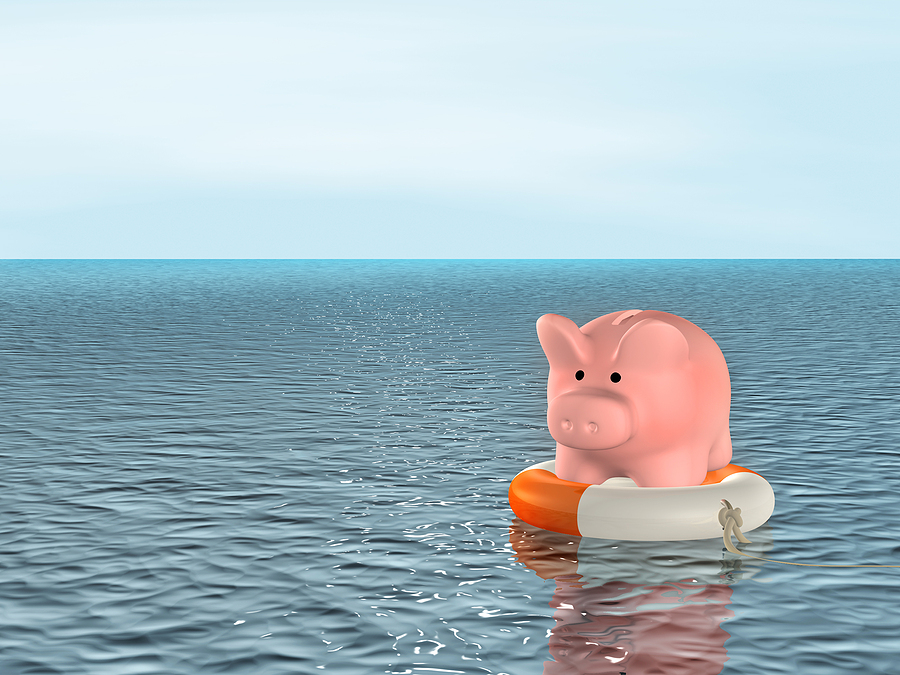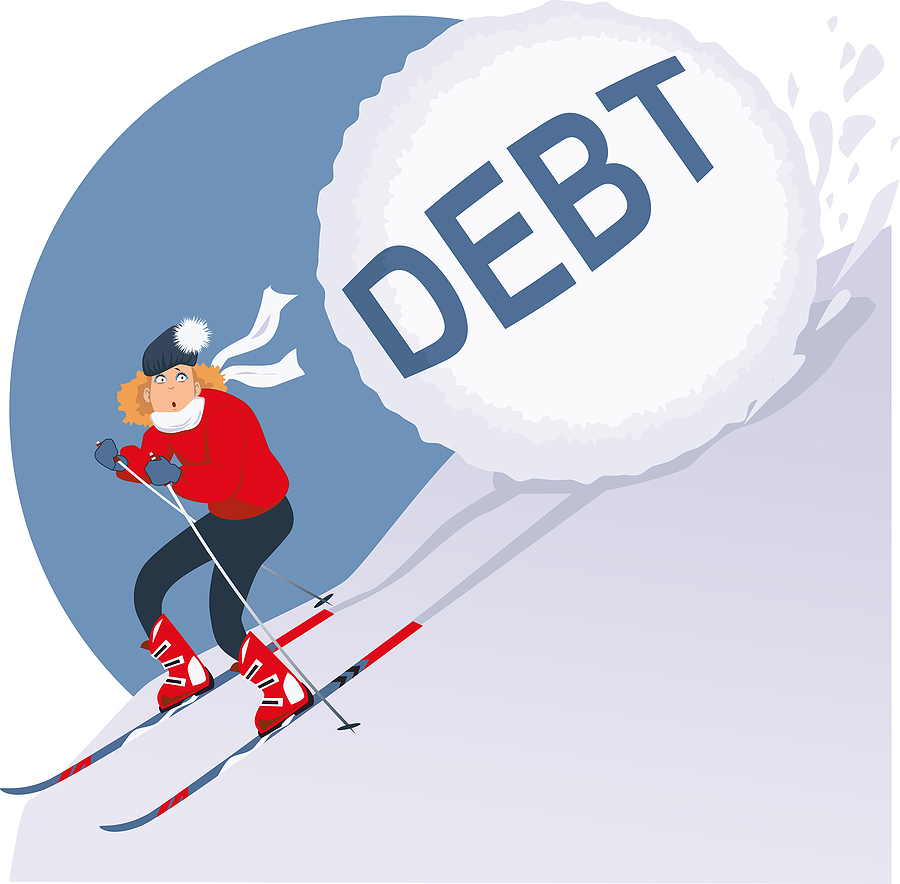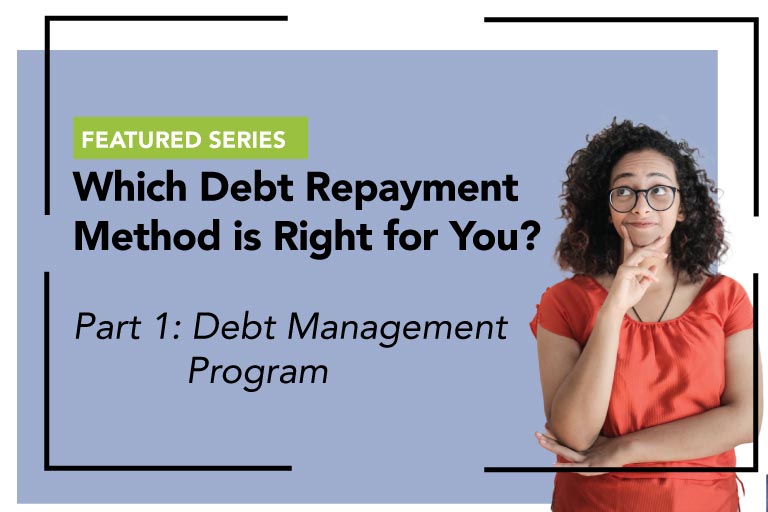How to Get Out of Credit Card Debt Without Paying Everything You Owe

Credit card debt is stressful! As your account balances grow, it can feel more and more impossible to imagine ever being debt free. You may even feel so overwhelmed that you’re tempted to find a quick fix, regardless of how risky or damaging the results.
What many debtors don’t realize, however, is that there are safe and legitimate ways to get out of credit card debt, without paying everything you owe. Here’s a closer look at your options.
Two ways to reduce your credit card debt
There are a lot of bad ways to go about reducing your debt. Some of the so-called solutions can ruin your credit, get you into legal trouble and cost you a lot of money. Instead of adding to an already stressful situation, try these options instead:
Debt consolidation
Consolidating your credit card debt involves opening up a new credit card or loan to pay off your debt. When you go about it the right way, you make it cheaper to pay off your debt and you can become debt free sooner.
How does it work? With this method, you roll your existing debt into a new account with a lower APR (a figure that represents interest plus all fees). By doing so, you can reduce the overall interest charges you have to pay, and potentially reduce your monthly payment, too. If you consolidate your debt with a 0% APR credit card, you could even go for a year or more with no interest charges on the balance you transfer.
However, this option may not be available if your credit scores are low, since you’re not likely to qualify for low rates on a new account. If you’re in this situation, you may want to prioritize looking for a personal loan to use for consolidation, instead of a credit card, since loans typically have far lower APRs than credit cards do.
A debt management plan
For many people, a debt management plan (DMP) is the best way to reduce credit card debt. DMPs involve a structured plan to pay off your eligible debt, with direction and support from a certified credit counselor.
Typically, the accounts you include in a DMP will qualify for waived fees and/or reduced interest rates. That means your plan can provide many of the same benefits as debt consolidation, while still being a viable option if you have less-than-stellar credit.
Risky credit card debt solutions to avoid
For every good option, there are 10 risky ways to address your credit card debt. Here are some solutions we don’t recommend:
Debt settlement
Debt settlement involves negotiating with a creditor to pay less than what you owe, and have the remaining amount dismissed.
There are two general types of debt settlement: debt you negotiate on your own, or “DIY debt settlement,” and for-profit debt settlement. With for-profit settlement, you work with a settlement firm that manages your debt reduction strategy.
Unfortunately, for-profit debt settlement is an extremely risky option that rarely works out in your favor, for a few reasons:
- You’ll have to stop paying your debt, which can cause significant damage to your credit scores and impact your credit reports for seven years or more.
- You send payments to the settlement firm each month, amounting to 15% to 25% of your debt.
- It can take three or more years of sending payments before negotiations begin, so many people drop out of their plans before then.
- Your creditors may choose to sue you for the debt rather than wait to negotiate a settlement.
- If your debt is forgiven, the forgiven amount can be treated as taxable income.
Studies have shown that most debt settlement clients do not settle half of their debt, even years into the debt settlement process. If a company promises better results, you’re likely being scammed.
What about DIY settlement?
Working with a firm to achieve a debt settlement has many drawbacks, but negotiating a settlement on your own can be a more affordable alternative. However, it is not perfect and only makes sense in a few situations.
To achieve DIY debt settlement, you contact your creditor and negotiate a lump sum payment for less than you owe. If you reach such an agreement with a creditor, you must get the terms in writing. Otherwise, you risk not being able to prove that you negotiated a settlement and fulfilled your obligation.
On top of that, the creditor is more likely to send your debt to collections than negotiate with you. Creditors don’t have much incentive to accept a settlement offer until you’re far behind on payment. But by that point, your credit score will have already taken a big hit.
So while a DIY settlement is safer than working with a fly-by-night settlement firm, it has many of the same drawbacks. The main advantage is that you can avoid the fees charged by a for-profit firm.
Bankruptcy
Another debt relief strategy that can give you partial debt forgiveness is bankruptcy. There are several different types of bankruptcy, but individuals usually file Chapter 7 or Chapter 13:
- Chapter 7 bankruptcy: This fairly quick legal process can wipe out your unsecured debts through what’s called a “discharge.”
- Chapter 13 bankruptcy: Chapter 13 can also result in a discharge, but typically only after you complete a 3-5 year repayment plan.
Still, there are serious drawbacks. Bankruptcy can cause major credit score damage, and Chapter 13 bankruptcy remains on your credit reports for seven years while Chapter 7 stays for 10 years. You’ll also have to pay court filing fees and qualify to file based on your income and other factors.
For some debtors, however, bankruptcy is the only way to become debt free. In fact, the NFCC provides support to people who file through two forms of counseling that are required by law as part of the bankruptcy process.
Stop paying your credit cards
If you go for several months without making a payment, your creditor may charge-off your account and send it to collections.
Missed payments and charge-offs can cause serious damage to your credit scores, and you can also expect to accrue late fees and other charges throughout the process, or even end up being sued for the debt. But a charge off can also give you a chance to negotiate with collectors to pay less than what you owe.
Get professional help
When you’re deep in credit card debt, even the riskiest of solutions can sound appealing. But the methods that promise quick results have serious consequences. Options like bankruptcy are a last resort for people who have no other way to pay off their debt. In other words, you’ll want to consider all of your other options first. If you could use some guidance in reviewing all of your methods for becoming debt free and making a plan to move forward, contact a credit counselor for free assistance.




